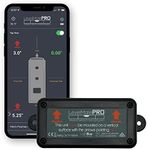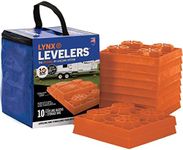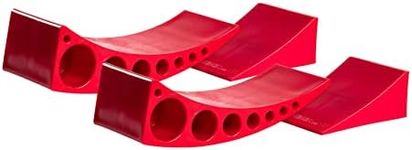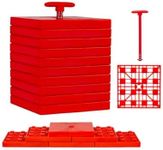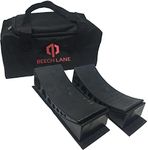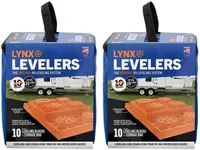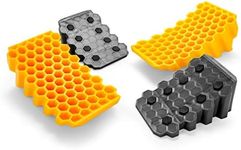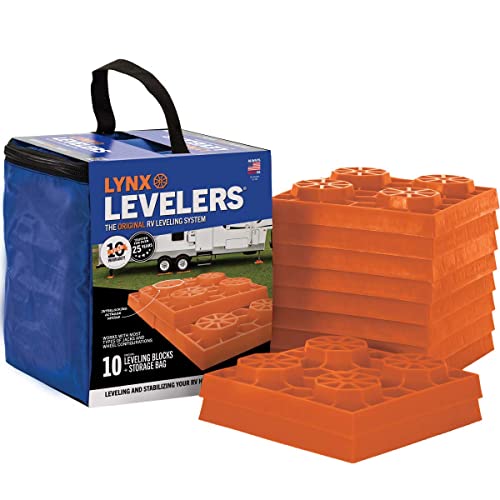Buying Guide for the Best Rv Levelers
Choosing the right RV leveler is important for both comfort and safety when parking your RV on uneven ground. A good leveler helps keep your RV stable, prevents appliances from malfunctioning, and ensures a better night's sleep. When shopping for RV levelers, it's important to understand the different types and features available so you can select the one that best matches your RV size, weight, and the kind of camping you do.Weight CapacityWeight capacity refers to the maximum load the leveler can safely support. This is crucial because using a leveler that can't handle your RV's weight can lead to breakage or unsafe conditions. Levelers are usually rated in pounds or tons. For smaller trailers, a lower capacity may be sufficient, while larger motorhomes require higher-rated levelers. Always check your RV's weight and choose a leveler that exceeds this number for safety.
Leveling RangeLeveling range indicates how much height adjustment the leveler can provide, usually measured in inches. This matters because campsites can be uneven to varying degrees. Some levelers offer just a few inches of lift, while others can handle more significant slopes. If you often camp in rugged or unpaved areas, a greater leveling range will be helpful. For mostly flat sites, a smaller range may suffice.
Type (Ramp, Block, or Automatic)There are several types of RV levelers: ramp-style, block-style, and automatic (electric or hydraulic). Ramp and block levelers are manual and require you to drive or place your RV wheels onto them, while automatic levelers use motors or hydraulics to adjust the RV at the push of a button. Manual types are simple and reliable, but require more effort. Automatic systems are convenient but more complex. Your choice depends on how much convenience you want and your willingness to do manual setup.
Material and DurabilityLevelers are made from materials like plastic, rubber, or metal. Durability is important because levelers need to withstand the weight of your RV and the elements. Plastic levelers are lightweight and easy to handle, but may not last as long under heavy loads. Metal levelers are very strong but heavier. Rubber options offer good grip and flexibility. Consider how often you'll use them and the conditions they'll face to pick the right material.
Ease of UseEase of use refers to how simple it is to set up and adjust the leveler. Some levelers are designed for quick placement and minimal effort, while others may require more time and precision. If you want to spend less time leveling and more time relaxing, look for levelers with features like built-in handles, clear markings, or self-locking mechanisms. Think about your physical ability and how much setup you’re comfortable with.
Size and PortabilityThe size and portability of a leveler affect how easy it is to store and transport. Compact levelers are easier to carry and fit into storage compartments, while larger ones may offer more stability but take up more space. If you have limited storage in your RV or travel frequently, a more portable option may be best. For stationary or seasonal use, size may be less of a concern.
